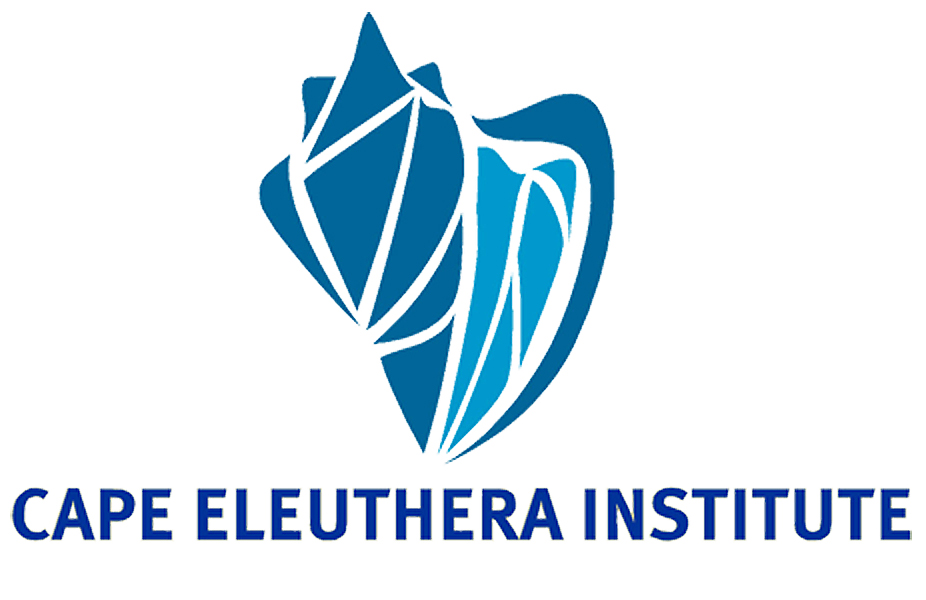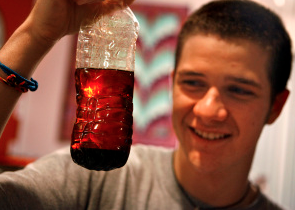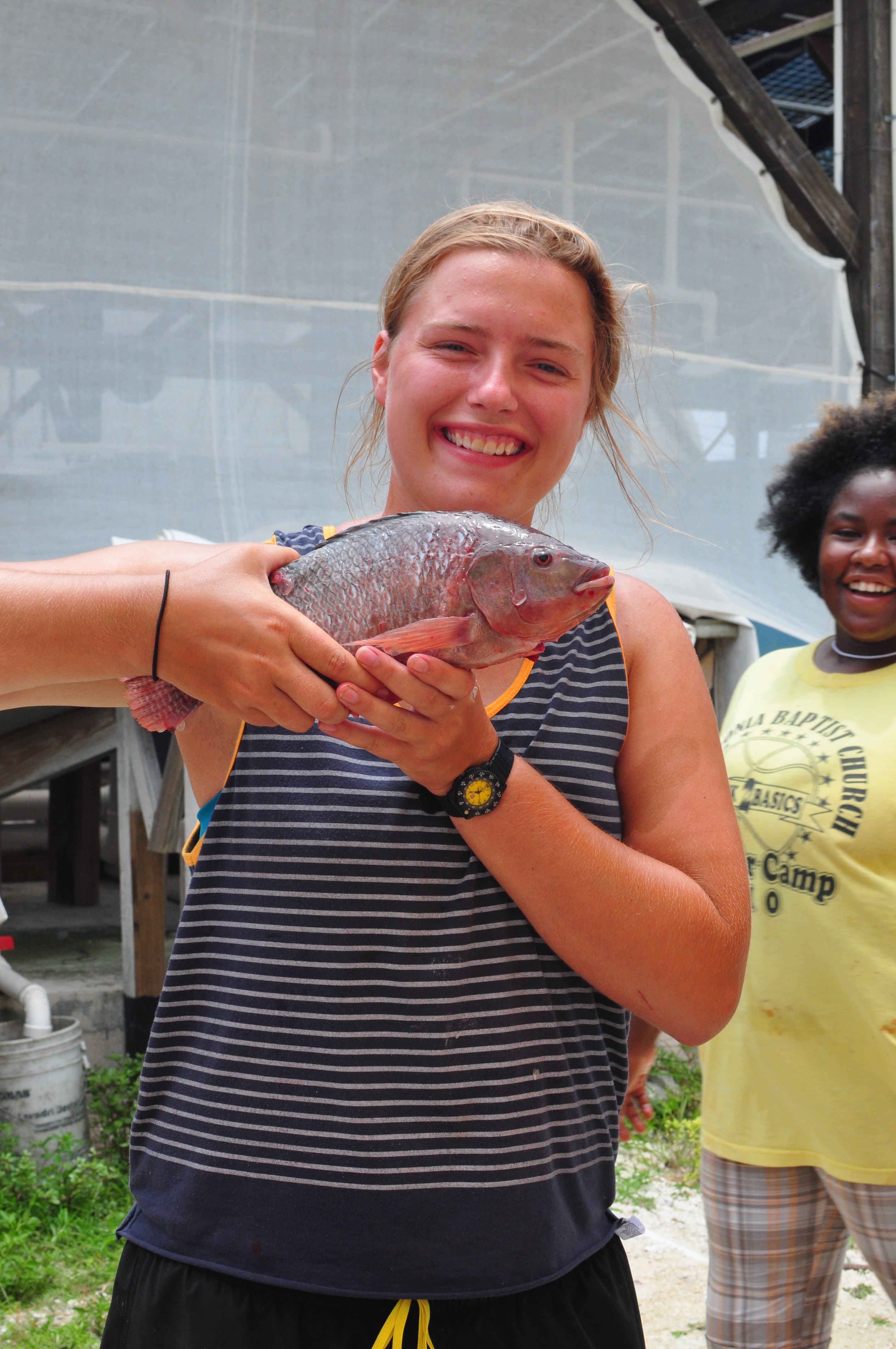Geoff Walton, Director of Facilities and Systems at the Cape Eleuthera Institute, received some press on the website www.workboat.com. The article highlights the process and hard work Geoff went through to get all of the school’s dive boats to run off our homemade biodiesel. Check out the article here!
Monthly Archives: August 2011
Scholarship at COA for Island School Alumni
 College of the Atlantic in Bar Harbor on Mount Desert Island, Maine is proud to offer scholarships to alumni of The Island School. Any incoming student who has attended The Island School and is admitted to College of the Atlantic (COA) will receive a scholarship of $10,000 per year for up to four years. Apply for admission to COA and include a letter of recommendation from a teacher at The Island School. If admitted, you will automatically receive this scholarship for your first year at COA; an additional $10,000 scholarship is available for each of the next three years of enrollment if satisfactory academic progress is maintained. This scholarship is available to incoming first-year and transfer students. In addition, you may qualify for need-based financial aid.
College of the Atlantic in Bar Harbor on Mount Desert Island, Maine is proud to offer scholarships to alumni of The Island School. Any incoming student who has attended The Island School and is admitted to College of the Atlantic (COA) will receive a scholarship of $10,000 per year for up to four years. Apply for admission to COA and include a letter of recommendation from a teacher at The Island School. If admitted, you will automatically receive this scholarship for your first year at COA; an additional $10,000 scholarship is available for each of the next three years of enrollment if satisfactory academic progress is maintained. This scholarship is available to incoming first-year and transfer students. In addition, you may qualify for need-based financial aid.
This is an amazing opportunity for our alumni applying for college to consider. If you have any further questions, contact us at alumni@islandschool.org.
CEI Internships
 CEI has a vibrant intern program designed to award individuals the opportunity to learn and contribute to all aspects of operating a remote research and education facility. We provide an intellectually rigorous atmosphere that allows new and returning members of our community to gain a deeper understanding of research projects, visiting educational programs, or systems at CEI. Continue reading
CEI has a vibrant intern program designed to award individuals the opportunity to learn and contribute to all aspects of operating a remote research and education facility. We provide an intellectually rigorous atmosphere that allows new and returning members of our community to gain a deeper understanding of research projects, visiting educational programs, or systems at CEI. Continue reading
The End of an Era
 Yesterday marked an end of an era at The Island School with the departure of the one and only David Miller. David came to The Island School three years ago with a ton of energy, some quirky expressions and a passion to change young people’s lives. There is no doubt that every student of David Miller has at least one (if not 20) story that brings a smile and recalls how he helped make their time at Island School invaluable. David, we cannot thank you enough for all your hard work and dedication over the years and we are sad to see you go! We wish you the best of luck and expect you to stay in touch and continue to make us all smile and do good work!
Yesterday marked an end of an era at The Island School with the departure of the one and only David Miller. David came to The Island School three years ago with a ton of energy, some quirky expressions and a passion to change young people’s lives. There is no doubt that every student of David Miller has at least one (if not 20) story that brings a smile and recalls how he helped make their time at Island School invaluable. David, we cannot thank you enough for all your hard work and dedication over the years and we are sad to see you go! We wish you the best of luck and expect you to stay in touch and continue to make us all smile and do good work!
–The Island School
South Eleuthera Kids Camp
 A few weeks ago the Educational Programs team had the pleasure of running our longest standing camp, The South Eleuthera Kids Camp (SEKC) for a five day event filled with wild fun, good times, and most importantly, some powerful learning moments. SEKC is a camp run yearly during the summer for local Eleutharan children to get a first hand experience of all that goes on at the Cape Eleuthera Institute and the Island school. Continue reading
A few weeks ago the Educational Programs team had the pleasure of running our longest standing camp, The South Eleuthera Kids Camp (SEKC) for a five day event filled with wild fun, good times, and most importantly, some powerful learning moments. SEKC is a camp run yearly during the summer for local Eleutharan children to get a first hand experience of all that goes on at the Cape Eleuthera Institute and the Island school. Continue reading
Apprentice Profile: Troy Williams
 Troy Williams or Rock Sound is part of the Bahamian Apprentice Programme and works with Spencer and Sam. He shares some of his experience below:
Troy Williams or Rock Sound is part of the Bahamian Apprentice Programme and works with Spencer and Sam. He shares some of his experience below:
My name is Troy Williams and I am an apprentice at the Island School. I work with two bright intelligent fellows: Sam and Spencer. It is my job to make sure that the pressure area stays in top shape. Which means that everything has to be sorted out in its right place but most importantly that it stays clean. From time to time I would work in the wood shop and assist Chris with work that he is doing. I am able to do this because I take a wood shop class in school and I am really good at it.
Alumni Spotlight: Evan Lutvak S10!
 Last we heard from Evan in this fall, he was well on his way to developing an efficient way to create his very own biodiesel. More recently, he has made some impressive progress, as documented in his local newspaper. Keep up the awesome work, Evan!
Last we heard from Evan in this fall, he was well on his way to developing an efficient way to create his very own biodiesel. More recently, he has made some impressive progress, as documented in his local newspaper. Keep up the awesome work, Evan!
Human Ecology Project: Phoenix Box
The following is a project summary from the Phoenix Box group. Human Ecology projects during Summer Term explored systems and proposed ways to effect a positive change by finding a leverage point and taking action.
The Phoenix Box is a symbol of knowing where your food comes from and about self-sustainability. The wood of the casuarina tree box rots when coming in contact with soil. This rotted wood can be used as soil for the next box that will be made. This cycle is similar to that of the mythical Phoenix, a bird that is reborn from the ashes of its deceased self. With each semester new people will be planting various flora inside the box. This opens the window for future human ecology projects and a chance for people to expand upon this already ongoing project. As well as the seeds planted inside the box, the idea of bringing this style of living to a place will be planted in the minds of all who come in contact with this idea. The entrance to the dining hall seemed a fitting location to place the Phoenix Box. This is because of the high amount of human traffic that passes by, as well as offering shade and protection from wind and salt, two things that these plants do not handle well.
The casuarina tree, which was used to make the box, is native to Australia and invasive in the Bahamas. Casuarina outcompetes other species, its needles spread out all over the ground making it hard for other plants to grow or survive. Because of the soil and plants in the box, the casuarina will rot each year having to be remade. The benefit of this is that more and more casuarina will be cut down and used. Once the wood breaks down it helps to make the soil more fertile. The soil we started with is a mix of sand, goat manure, and casuarina shavings left over from our project. We gathered cardboard from resources and used it in the bottom of the box to help prevent water from running straight through the soil. Also from resources is the watering can we decorated for the use of the Phoenix box.
After talking with Josh Shultz and Geoff Walton about our plans, we started the construction of the box by planing casuarina wood in order to make them equal width. Once this was done, we enlisted the help of Rico to cut the wood into planks and join them together with screws and supports to form a three by two box. This process was difficult due to the high density of the wood. So dense in fact that it can even sink in water! After digging a hole about six inches deep, we put the box in the ground in order to prevent it from flying away during hurricane season. Besides the wind protection, we also chose the spot for sun protection and good placement for CEI, students, and faculty to see the box and have access to the communal garden.
Once the box was done, we talked to Joseph, the groundskeeper, and decided that goat manure, sand, soil and wood shavings from the wood we planed would make the best fertilizer for the herbs. We also learned that herbs would be the best things to plant because they are beneficial to everyone and require less upkeep in comparison to flowers. So, we transplanted mint into the box and planted basil seeds, then watered it a lot. When all this was done, we made the sign by planing wood in the wood shop, cutting it, and painting it. We could not paint the wood of the box since the chemicals in the paint might leak into the soil and intoxicate the herbs.
The purpose of the Phoenix Box is to teach Island School students and community members about the importance of knowing where their food comes from. Most people don’t know how their food gets from a farm to a grocery store; our herbs can go straight from the Phoenix Box to the kitchen. Also, our project teaches people about the value of food. It is difficult to grow plants, especially in Eleuthera where the soil is not very fertile. Hopefully, people will learn to appreciate food more and will waste less. The garden also promotes using local food, which is better health-wise and cost-wise, since less money is spent on imported food that has been produced on large-scale farms using chemical fertilizers. Our fourth purpose for implementing the Phoenix Box is to encourage people to grow their own food and think about where their food comes from when they return home. Even if you live in a small house or apartment, you still have enough space to grow a few plants!
The Phoenix Box symbolizes a hopeful future in Eleuthera as a larger emphasis on agriculture can be placed upon the people rather than the U.S. for food. Eleuthera used to be the “Breadbasket of the Bahamas”; however as competition increased and as policies changed during independence to put Bahamians in more “sophisticated” jobs in the office, as a higher emphasis was placed on tourism, agriculture declined rapidly. Now most of the agricultural operations are fairly small scale and local opposed to the past commercial farms. The Phoenix Box connects to Eleuthera by displaying how important growing food on the island is to the sustainability of the future food sources for Eleutherans. Optimistically, the Phoenix Box will encourage a higher awareness of where food on Eleuthera comes from, as well as any more sustainable alternatives. We hope that future students will maintain this box and use it as a communal garden space.
Alumni on Campus: Mikala Cooper
 Another of the many alums currently on campus, Mikala (Mik) Cooper (F07) joins team CEI for the summer frmo Bowdoin College in Maine. Though her major is undecided at the moment, Mik is leaning towards a studio art degree in photography. As a studio arts scholar, Mik does not get much opportunity to get her hands dirty in the world of the sciences, particularly not in the marine sciences. Her summer at CEI is giving her a chance to reconnect with the sciences the marine environment that she grew so fond of during her semester at The Islands School.
Another of the many alums currently on campus, Mikala (Mik) Cooper (F07) joins team CEI for the summer frmo Bowdoin College in Maine. Though her major is undecided at the moment, Mik is leaning towards a studio art degree in photography. As a studio arts scholar, Mik does not get much opportunity to get her hands dirty in the world of the sciences, particularly not in the marine sciences. Her summer at CEI is giving her a chance to reconnect with the sciences the marine environment that she grew so fond of during her semester at The Islands School.
This is Mik’s second trip back to Eleuthera since leaving her semester, as she was on island for the 10th year celebration. Mik confesses that she loves both fish and lettuce, so it’s not a stretch to see her working alongside Josh Shultz in the aquaponics system at CEI. As an intern she enjoys seeing the “other side” of campus than she was used to as a student. As is the case with many alumni who return as CEI interns, Mik also relishes the freedom she has to explore the Cape beyond campus, and Eleuthera beyond the Cape.
Mik is a leo, and naturally her spirit animal is a lion, so if you see her around campus, be sure to give her a roar and say hello!
